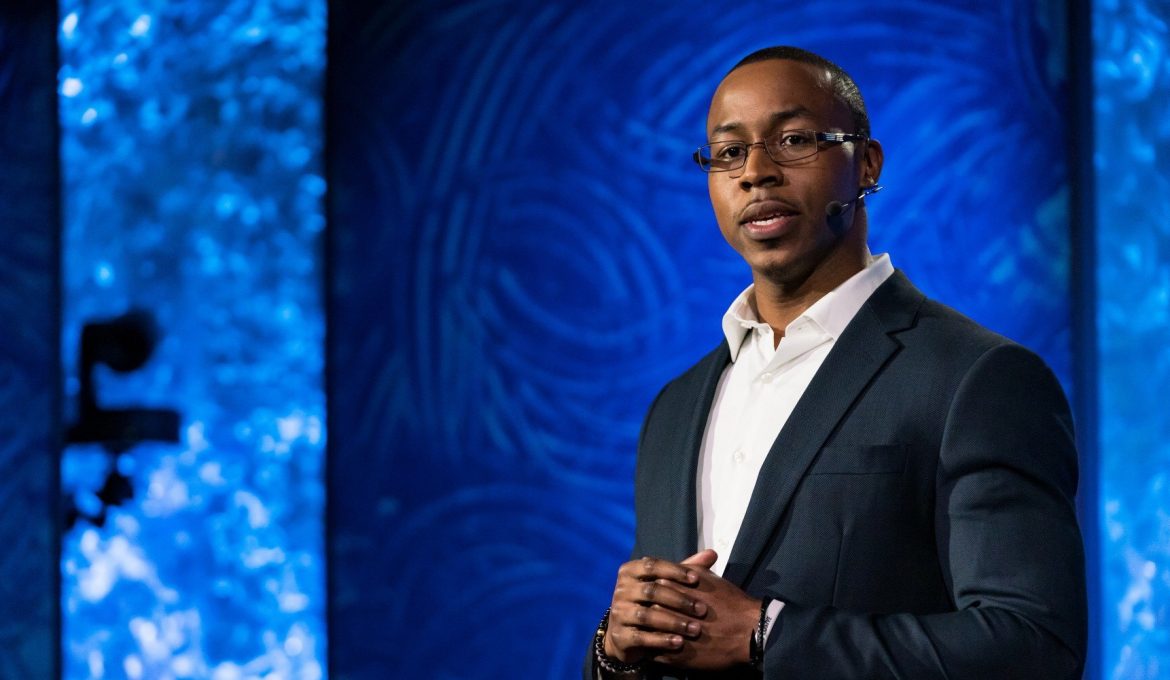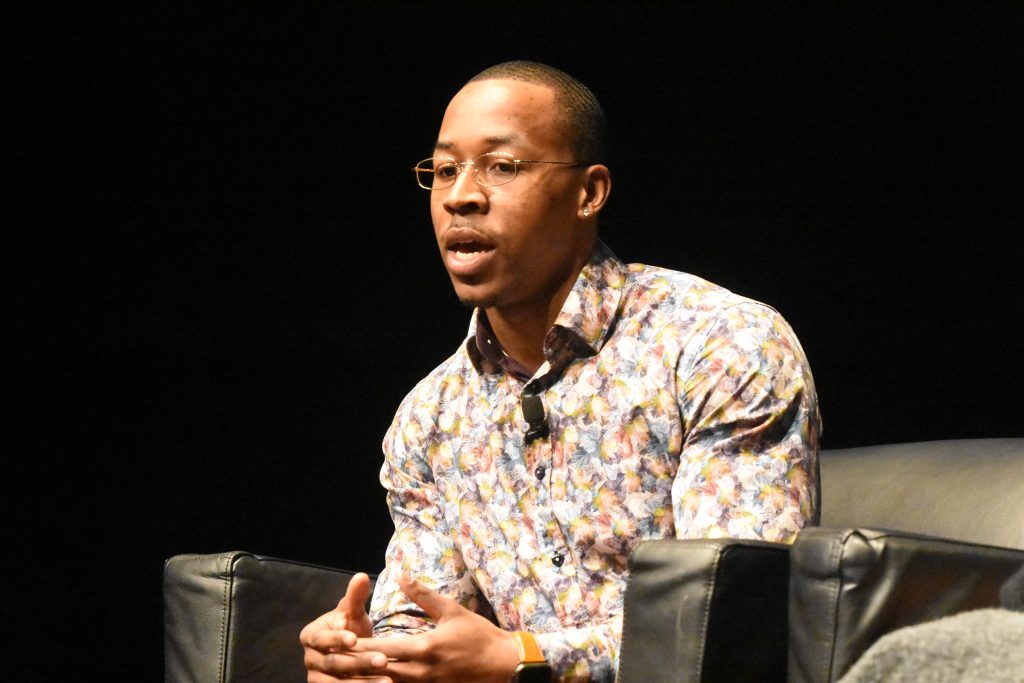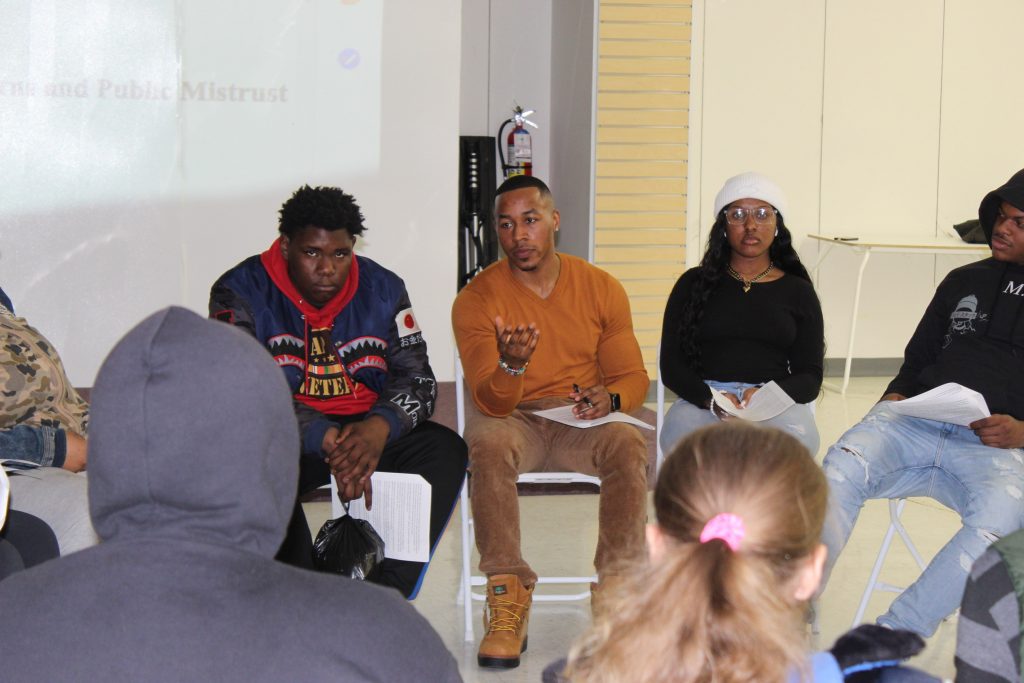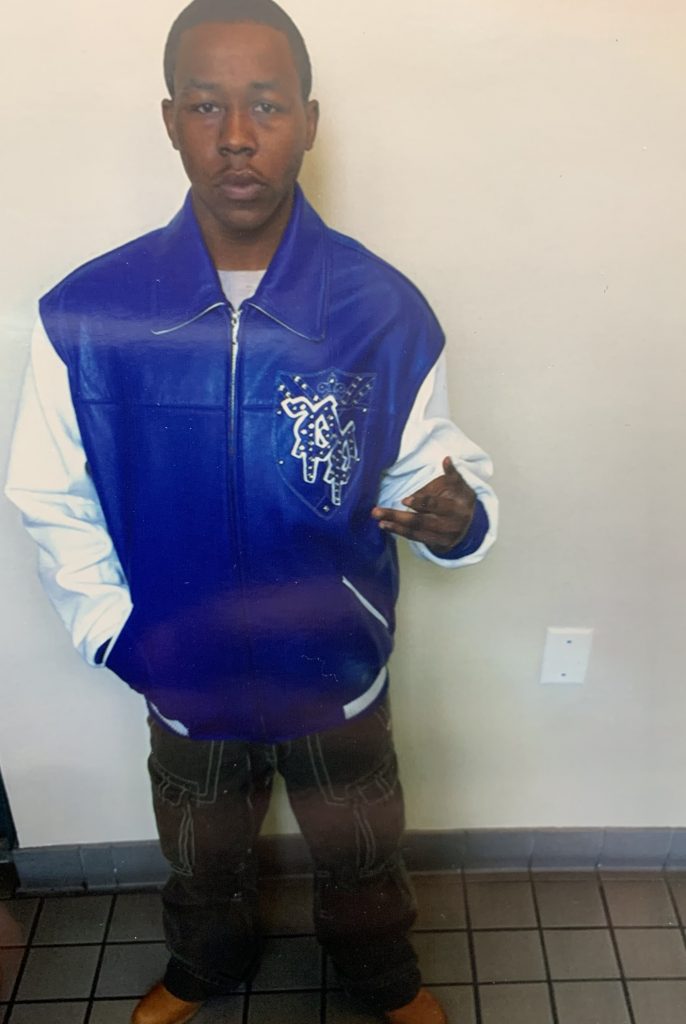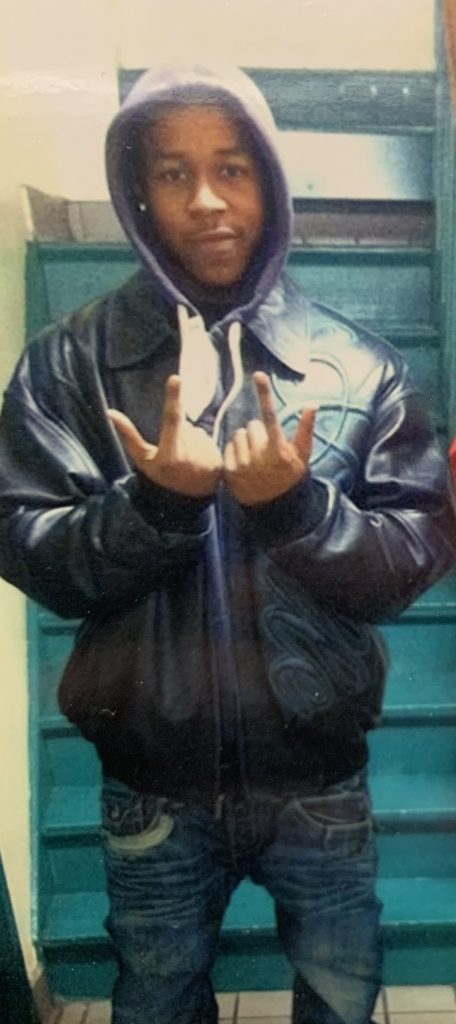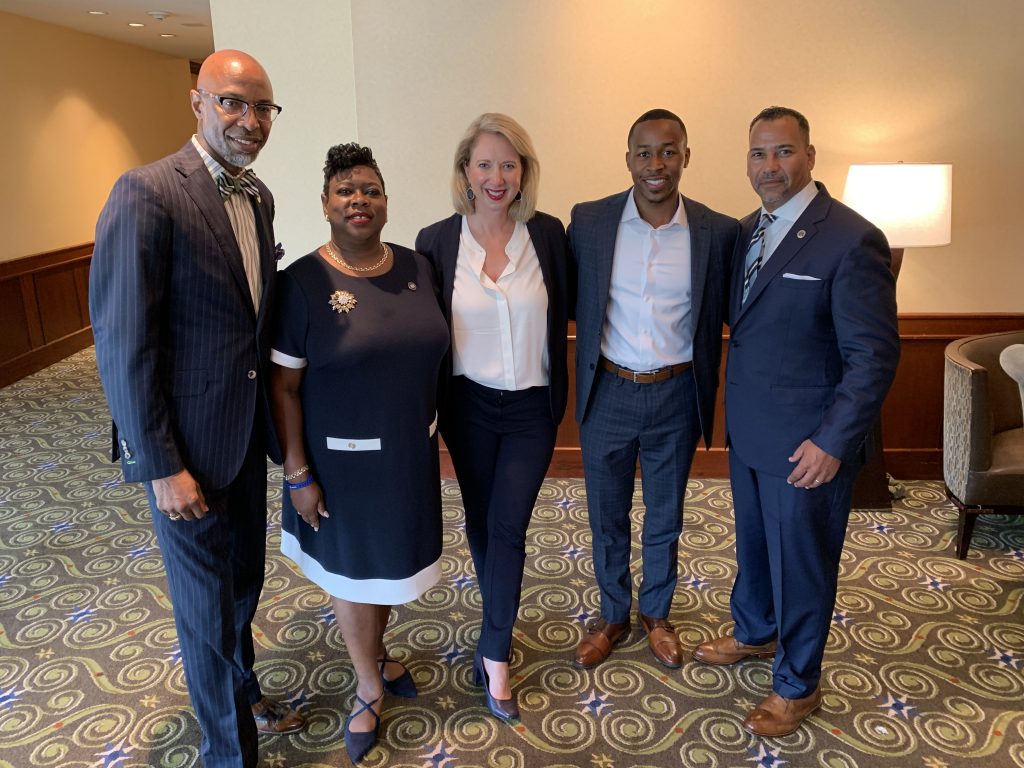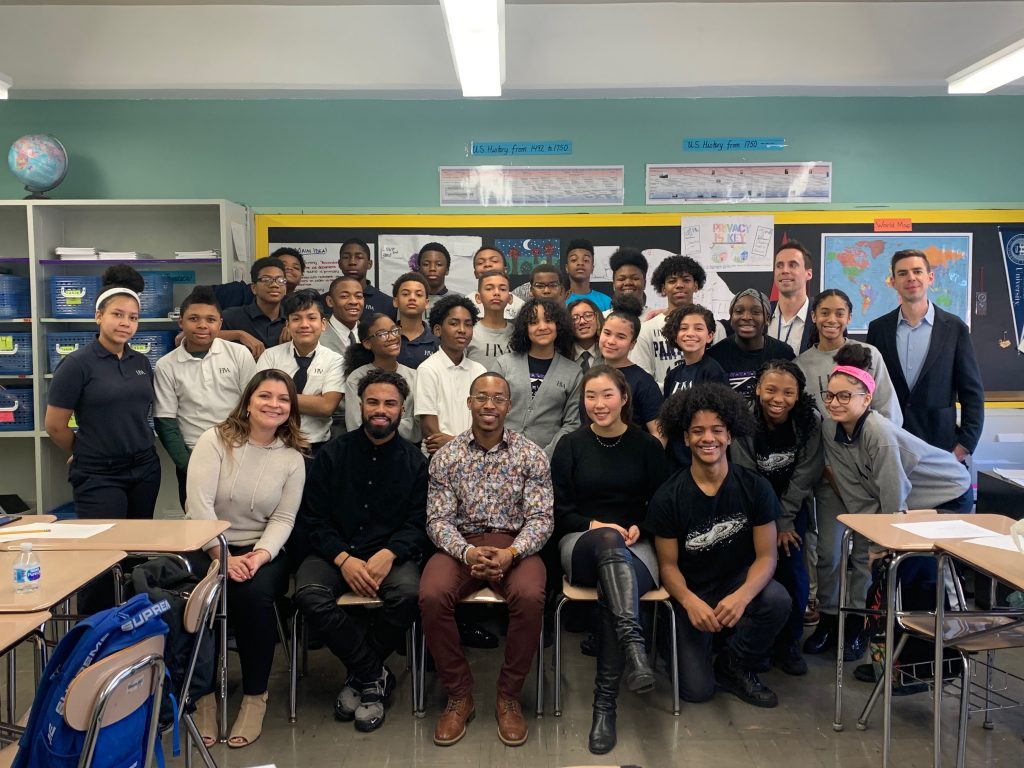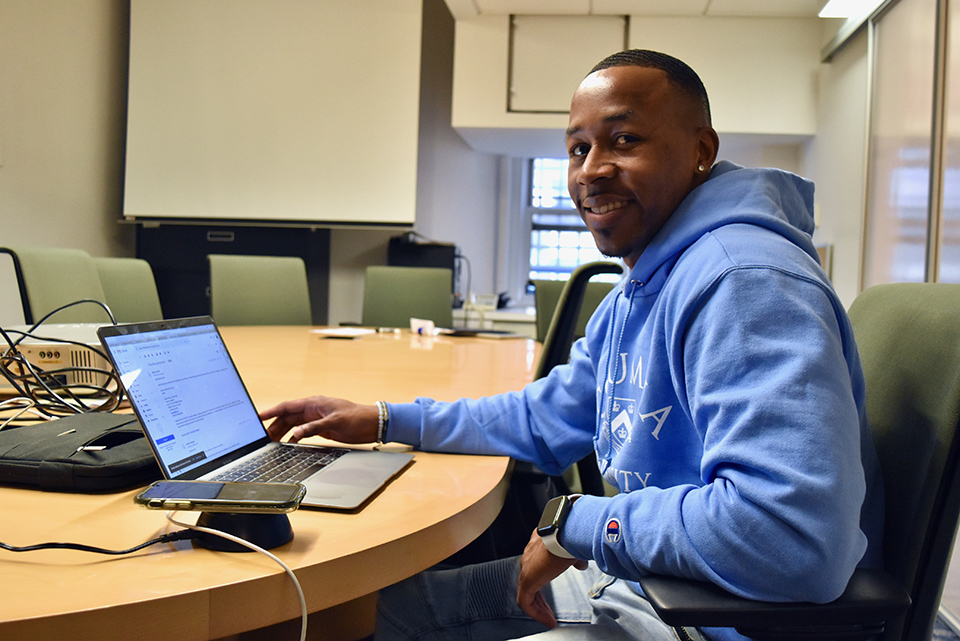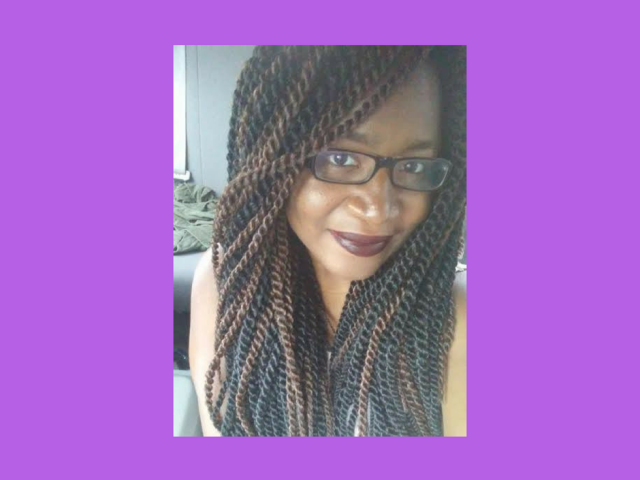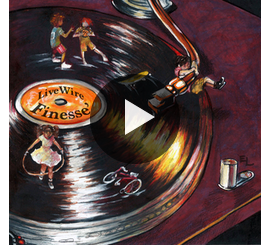There is a poem written by Tupac Shakur called “The Rose That Grew From Concrete.” The concrete represented Tupac’s tumultuous environment and the rose represented the person that he became despite his negative circumstances. I thought of this poem after interviewing Jarrell Daniels.
I met Jarrell two years ago at the Atlanta Marriott Marquis. I was there doing event coverage for the Bronze Lens Film Festival, and he was there attending a conference for the National Association of Criminal Defense Lawyers. We exchanged numbers and social media information and made plans to connect the next day. Unfortunately, because of my schedule, we weren’t able to get together.
I started scrolling through Jarrell’s Instagram feed and I came across a video of him speaking to a group of teenagers. In the video, he was talking to them about his experience of being incarcerated for six years. He encouraged them to avoid making decisions that could have a negative impact on their life. I was surprised because by looking at Jarrell, you would have never thought he served time in prison. But then again, I had to ask myself, what is someone who was formerly incarcerated supposed to look like? I started looking at more of his posts, and I saw that he worked for the Center for Justice at Columbia University. I also saw that he was a criminal justice reform advocate. I was impressed that someone so young, who had experienced that type of adversity, was able to persevere and willingly wanted to give back to his community. I regretted that I missed the opportunity to learn more about his story.
Over the last 2 years, I have followed Jarrell’s journey through social media. His following has grown from a little over a hundred followers to almost 2.K. He has appeared on TEDx and other platforms continuing to advocate for prison reform and equality in the criminal justice system.
A few weeks ago, Jarrel helped to host a Zoom viewing party for a virtual reality simulation project called “Digital Arrest.” The experiment allows users to gain deeper insight into Jarrell’s life outside of the crime that he was convicted of. The project demonstrates how social media platforms can be used to incriminate people for crimes that they did not commit. In Jarrell’s case, social media was used to incriminate him on gang conspiracy charges when he was a teenager.
A few days after attending the event, I reached out to Jarrel to see if he would be interested in doing an interview, which he agreed to. I was excited because I would finally get the opportunity to learn more about his story.
When interviewing someone, I like to find out about their background and what they were like growing up as a kid. Jarrell disclosed that he grew up in poverty and that he was pre-exposed to violence at a young age. At only five years old, he witnessed his mother’s best friend get her throat slashed. As an adolescent he was exposed to his mother’s abusive domestic violence relationship and he also spent time in the foster care system. As someone who grew up in a middle-class family, who never wanted for anything, I couldn’t imagine living in that type of environment. Hearing his story reminded me of the tv series The Wire, but for him it was real life.
To escape the dysfunction of his household, Jarrel joined a street crew called WTG. At age 15 he was initiated into the Bloods Street Gang. Jarrell wanted to make the distinction that street crews were not sanctioned gangs. His affiliation with WTG led to him getting indicted in a 41 count gang conspiracy in NYC. At age 18 he was found guilty of assault in the first degree and was sentenced to six years in prison. He spent 11 months at Riker’s Island, served time at Bare Hill Correctional Facility, and was later transferred to Queensboro Correctional Facility, where he completed his prison sentence.
Jarrel discusses the circumstances that led to his arrest, life after prison, and his future career plans in our interview below:
Amy Nicole: Can you explain in more detail the circumstances that led to your arrest?
Jarrell: The situation surrounding the incident was that my sister was being attacked by a group of girls. When I tried to intervene, one of the guys standing nearby slashed me in the face with a razor blade. In return, I discharged rounds from an illegal firearm. After an investigation by the DA’s office and the police department, I was arrested 15 months later on gang conspiracy charges. They used the shooting incident to say that I sparked a gang turf war. I was indicted with 9 other individuals from my neighborhood, and we were charged with having a rival fuel with 17 people from another neighborhood.
Amy Nicole: How has your life changed since your release from prison?
Jarrell: I’ve been home for 2.5 years now. Since I’ve been home, I attended a community college, and last year I transferred to Columbia University. Since then, I founded a youth council called Justice Ambassadors Youth Council. The goal is to empower youth who have an interest in judicial system involvement, and young people on the verge of committing extreme acts like I did when I was a teenager. The program allows them to work with people from government agencies. We recruit people from the mayor’s office, city council, The Administration of Child Services, The Department of Education, and other government agencies. We bring together 10 city agency representatives and 10 young people for a cohort of 20. They work together in a collaborative classroom for 8 weeks to create joint policy recommendations. The goal is to have young people’s ideas and experiences inform policy recommendations for government agencies.
Amy Nicole: A lot of people who are released from prison have a difficult time reintegrating back into society? How was your reintegration process?
Jarrell: There were three things in my favor when I came home from prison- God, White people with resources and money, and me being young. I came home at 23 years old at the height of criminal justice reform when everything was geared towards improving the lives of young people before they had the mark of a felony conviction. I was in a position to take advantage of the opportunities that were presented to me.
I was also involved in a program called “Inside Criminal Justice.” The program was officially launched inside of the correctional facility where I was released. I signed up for the volunteer program thinking that it was going to be an ordinary college course, but it ended up being a class that featured district attorneys from the Manhattan District Attorney’s Office. One of the things that led to me getting into Columbia was taking this course that was administered by the university inside of the prison. The professor that taught the course was the director for The Center of Justice, which is where I now work.
The seminar course started two weeks before I was scheduled to be released. I was so convinced that this would be a life-changing opportunity, not because I was in a course with district attorneys, but because they were asking people who were incarcerated to help them come up with policy recommendations that the DA’s office could implement. I needed to figure out a way to complete the program, so I asked the DAs if they could use their leverage to grant me security clearance to complete the course. I was granted clearance, and a week after being released I was going back to prison 2 days a week for an entire semester to complete the course. From that act of service and dedication to the program, I was offered an internship. That’s how I got into Columbia. That’s why I’m dedicated to what I do. I don’t think it’s fair for only 1 or 2 people to have opportunities to transform their life.
Amy Nicole: What motivated you to pursue higher education and turn your life around?
Jarrell: I was introduced to the Nation Of Islam during my fourth year in prison. The religion helped me to transform the way that I thought about the world around me. It helped me to build up the courage to denounce my gang affiliation. The teachings helped me to change my mindset, and from there I started to develop a plan surrounding my life. I spent the last two years of my six-year sentence researching career fields that were felon friendly, and I created a five-year plan. The eventual goal was to obtain the highest level of education because I knew education was the one thing that would be recognized, and people would hopefully overlook a felony conviction.
Amy Nicole: What are your career plans after finishing college?
Jarrell: I don’t see myself in one profession for the rest of my life. I’m considering completing a joint JD Ph.D. at Columbia, Harvard, or Yale. I’m for sure going to law school and for sure going to have a concentration in Constitutional Law and Civil Rights Practice. From there, I would like to become a Civil Rights attorney. I want to spend my time in a civil rights capacity investigating law enforcement agencies here in NYC and also the public school system. Eventually, I would like to run for an elected office. I’m still eligible to run for state senate as a felon.
If I get fed up with politics along the way, I would like to become an educator. I can see myself as a high school level teacher. I want to help prepare students for what the next steps of their lives will be. I want to specifically teach Social Justice.
I’m also working on a book, but who knows where that will take me. I also enjoy creative writing, I have a few opinion pieces that I haven’t put out yet. I’m also interested in real estate.
Out of all the people that I have interviewed, Jarrell’s story is one of the most inspiring. Many people make excuses for why they can’t accomplish certain goals, or they choose to blame other people or circumstances for why they aren’t successful in life.
Despite the obstacles that Jarrel has faced in his 25 years of life, he has chosen to persevere, which is what I admire and respect about him. He proves that although someone’s environment can influence their behavior, it doesn’t have to define who they eventually become.
I enjoyed interviewing Jarrell, and I’m looking forward to seeing all the amazing things that I know he is going to accomplish in his life.
Nobody wakes up and wants to commit a crime, nobody wakes up and says they want to sell drugs or rob people or even shoot people. Circumstances condition you to respond and react to situations in the way that you do. ~Jarrell Daniels~

